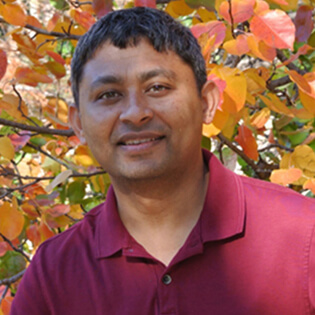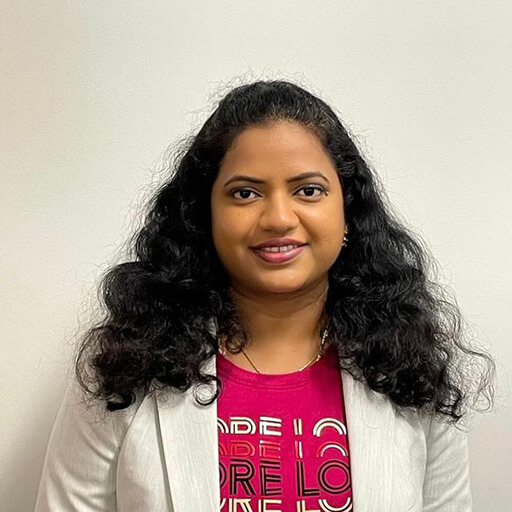
GulabZode
PhD
Location
Fort Worth, TX, USA
Current Organization
University of North Texas Health Science Center
Biography
Dr. Gulab Zode is a tenured Professor at the North Texas Eye Research Institute and Department of Pharmacology and Neuroscience. His research focus is to understand how cellular processes including unfolded protein response pathway and autophagy regulate protein misfolding in the glaucomatous trabecular meshwork (TM) and to develop targeted treatments for glaucoma based on the understanding of these pathways. He has been conducting glaucoma research over 19 years and his lab is primarily funded by the National Eye Institute with 3 R01s. His research is mainly focused on studying the role of chronic endoplasmic reticulum (ER) stress and autophagy in trabecular meshwork (TM) dysfunction and IOP elevation in glaucoma. Dr. Zode’s lab has considerable expertise in mouse models of glaucoma including GC or MYOC-induced POAG models. Using these models, he had previously discovered that chronic ER stress leads to TM dysfunction and IOP elevation and reducing ER stress via small chemical chaperone or genetic knockdown of chronic ER stress rescues mouse model of glaucoma (JCI 2011 and 2013; Nature Communications 2020; PNAS 2018). Recently his lab has demonstrated the feasibility of targeting the mutant myocilin gene using CRISPR-Cas9 genome editing to prevent and reverse glaucoma in myocilin-associated POAG in mice and in human donor eyes. Moreover, his lab has also identified that impaired autophagy leads to IOP elevation, and genetic or pharmacological inhibition of chronic ER stress corrects impaired autophagy and rescues mouse models of ocular hypertension (JCI insight 2021). In addition, his lab has recently demonstrated the role of mechanosensitive TRPV4 channels in pathophysiology of glaucomatous TM damage and IOP elevation (PNAS 2021). Dr. Zode has a strong and continued commitment to mentoring trainees at various stages and has been training 3 graduate students and 2 post-doctoral fellows. He is also serving as a Mentor in the STAR leadership program to provide mentorship to young investigators and post-docs to sustain successful research careers.
Grants
Grants Featuring
Gulab Zode, PhD
National Glaucoma Research
Increased Pressure in Eye Affects the Neuronal Communications in the Brain
Active Dates
July 01, 2022 - June 30, 2025

Principal Investigator
Prabhavathi Maddineni, PhD
Increased Pressure in Eye Affects the Neuronal Communications in the Brain
Active Dates
July 01, 2022 - June 30, 2025

Principal Investigator
Prabhavathi Maddineni, PhD
National Glaucoma Research
Targeting ER Stress for the Treatment of Steroid and Myocilin Glaucoma
Active Dates
July 01, 2017 - June 30, 2019

Principal Investigator
Gulab Zode, PhD
Targeting ER Stress for the Treatment of Steroid and Myocilin Glaucoma
Active Dates
July 01, 2017 - June 30, 2019

Principal Investigator
Gulab Zode, PhD



